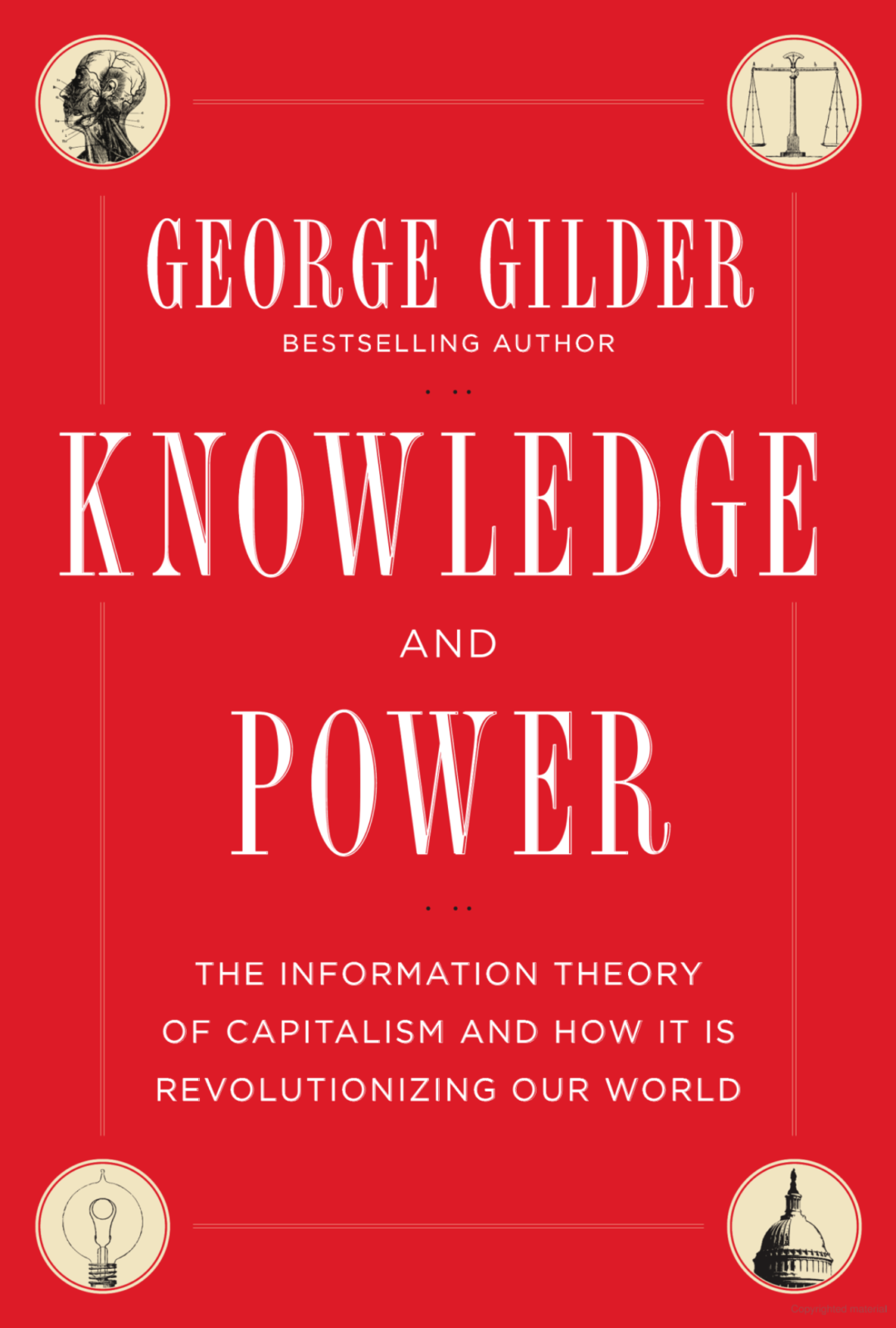Information, the Entrepreneur, and George Gilder’s New Economic Thinking
Published at American Enterprise InstituteGeorge Gilder’s vision of data-driven capitalism has much to recommend it, but caution is warranted.

There is fundamentally new economic thinking to be found in the latest book by George Gilder, called Knowledge and Power: The Information Theory of Capitalism and How it is Revolutionizing our World (Regnery Publishing, June 2013). If conventional economics can be summed up as “follow the money” (i.e., incentives are what matter), Gilder's economics might be summed up as “follow the information” (i.e., economic success involves separating signal from noise in data).
Gilder draws on information theory, as developed by the famed mathematician Claude Shannon and others, as a central metaphor for the economy. In Gilder's rendition, information consists of striking surprises conveyed over a quiet, stable channel. Gilder then adapts this metaphor to economic phenomena, including entrepreneurship, finance, the role of government, and income redistribution.
At a philosophical level, Gilder makes an impassioned metaphysical case for human agency, and he claims that information theory supports such a metaphysical outlook. He argues that the theorems of Kurt Gödel and Alan Turing, two of the 20th century’s most brilliant mathematicians, are inconsistent with purely deterministic systems.
At a practical level, Gilder sees entrepreneurs as creative agents of change. This is a contrast with the standard view in economics, in which entrepreneurs are simply machines following a program given by market incentives. In the conventional view, and even among some Austrian economists, an entrepreneur is someone who, noticing that the price of ketchup is high and the price of tomatoes is low, thinks, “Aha! I should open up another ketchup factory.” This type of conventional thinking guides the economy toward a more efficient allocation of resources. But with this account of entrepreneurship, Gilder complains, the best an entrepreneur can do is help the economy reach a state of stagnation, otherwise known in economics as “equilibrium.”
Instead, Gilder sees the entrepreneur as engaged in a continual effort to obtain information by testing out new products and services. While many of these efforts fail, in the aggregate they succeed fantastically by providing economic growth and a standard of living undreamt of centuries ago.
Gilder is more worried that taxation will shift capital from people who know how best to use it to people who are removed from the knowledge of how to use it.
In the conventional view, the entrepreneur is embedded in a market that provides information in the form of prices. His role is to move the economy toward equilibrium. In Gilder's view, however, entrepreneurs create information where none existed before. Rather than sustain the equilibrium, their role is to disturb it.
Continue Reading at American Enterprise Institute